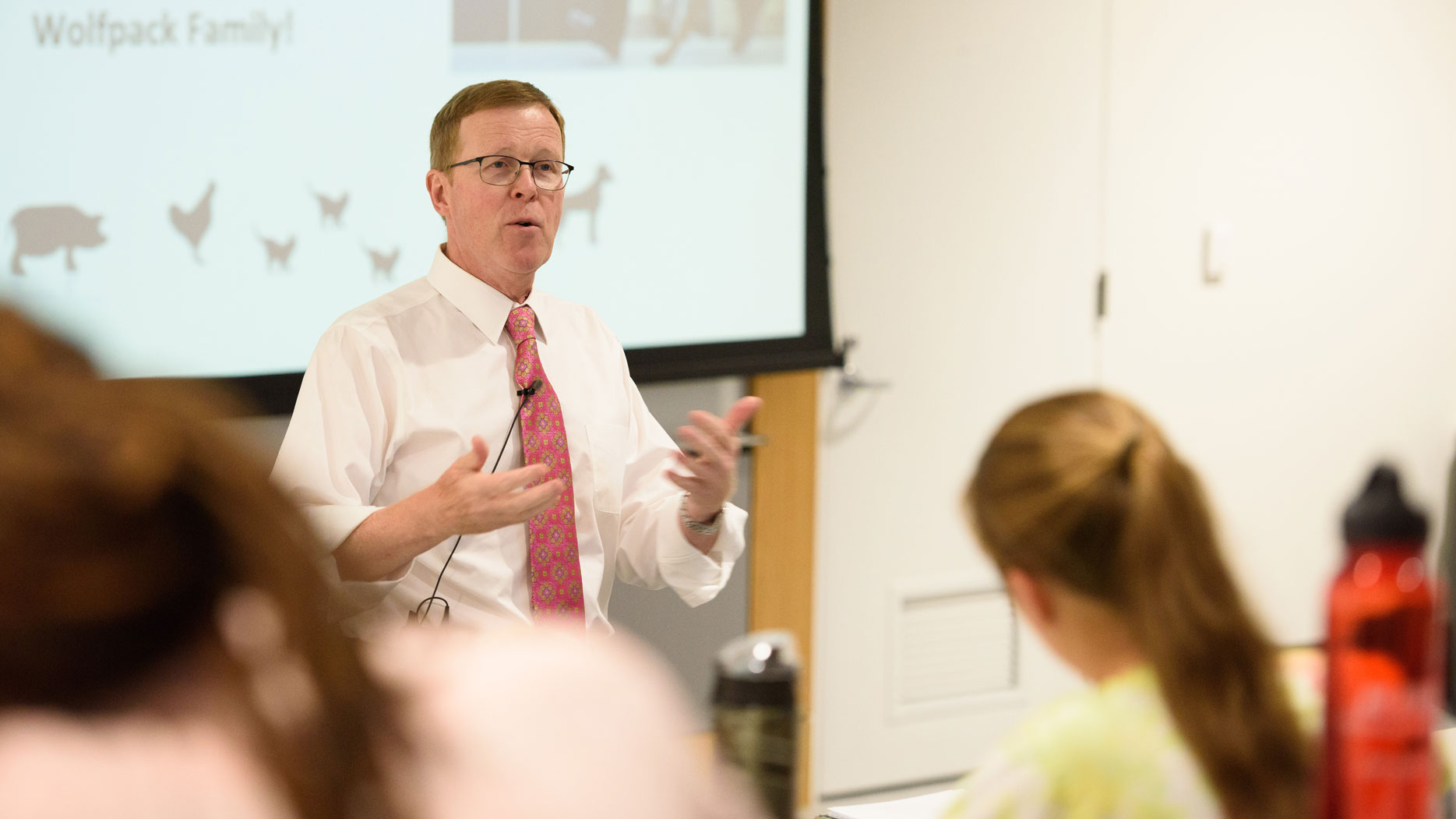Strength in Diversity

Having a new class start their DVM program each August is always exciting and gives everyone a lift as the semester begins. The Class of 2021 is certainly no exception. They have already demonstrated their character and they are nothing if not enthusiastic. They seem to approve of our house system. They certainly approve of the house shirts and, according to our canteen staff, they can eat! Sales shot up in the newly renovated dining hall, which is often full over the noon hour. The new class is also from a broad range of backgrounds. Out of the class of 100, we recruited 39 graduates from the Department of Animal Sciences at NC State’s College of Agriculture and Life Sciences. We have two students with doctorates, six with a military background (including a 21-year veteran of the Marines), teachers, nurses, beekeepers and a winemaker. In addition to the 80 in-state students, we have students from 16 other states and one from Puerto Rico.
The Class of 2021 brings another kind of diversity, as they make a huge contribution to the number of under-represented minorities in our student population. This is not a one-year phenomenon. If we look at the current four class years attending the college, including the Class of 2021, the average percentage of our students who are from underrepresented minorities is 22 percent. This is a big change for this college, because if we look at the previous four class years that average was 11 percent. Change like this does not come about by accident. Hard work by many people in our academic administration, and particularly our admissions committee, helped recruit and build these classes who better represent the society in which they will practice veterinary medicine. Above all, credit goes to Dr. Allen Cannedy, our director for diversity and multicultural affairs, who has worked tirelessly to support these efforts.
There are many reasons why growing the number of underrepresented minorities in our DVM class is important. Clearly there is an enormous social justice motivation. Providing opportunity to pursue a veterinary degree to people of all races and ethnicities is a vital obligation.
There are also some very pragmatic motivations in the veterinary profession that makes growing diversity in the profession a critical mission. Veterinarians need to be everywhere and to work with everyone. We need new graduates who understand all kinds of cultures and backgrounds, who have lived in diverse cultures and who are comfortable working with all members of our society. Our graduates need to deliver veterinary care and veterinary science throughout this country and the world, and our chances of doing that effectively are far greater if we can build the diversity of our profession. The Class of 2021 is making a big difference just by being here.
~Dean Paul Lunn


